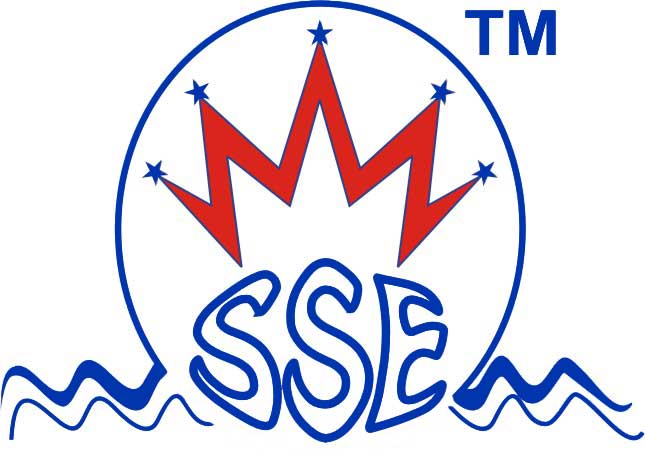
Blog
Online Casino Game Compliance in India Navigating Legal and Technical Challenges
Employment Law & Regulatory Compliance: Online Casino Participation for Government Employees
Regular discussions around the importance of compliance, coupled with recognition of those who excel, can further reinforce this culture, making it a shared value across all levels of the organization. The regulation of “betting and gambling” in India falls under the jurisdiction of individual states, as mandated by the Constitution. This decentralized authority has resulted in a patchwork of laws that vary significantly from state to state. C) The Act doesn’t distinctly address popular modern variants such as games with in-app purchases, battle passes, or microtransactions. B) Prohibition of real-money formats disrupts existing business models and may necessitate realignment of investment strategies and risk assessment protocols.
The Online Casino Gambling Bill includes a three-stage licensing process to determine who may apply for one of the 15 available licenses. Applicants will need to meet a range of regulatory requirements at an expression of interest stage to then be able to participate in a competitive process (the first competitive process will be an auction). The competitive process will determine the 15 operators that can apply for an online casino gambling licence as part of the final stage. Until the regulatory system is implemented, and licenses are awarded to operators who meet a range of regulatory requirements, the Department of Internal Affairs is unable to channel players towards unregulated online casino websites. For now, the advertisement of any offshore casino website is prohibited under section 16 of the Gambling Act. The New Zealand Government is introducing new legislation to regulate online casino gambling to ensure a safe, fair and well-controlled online gambling environment.
- In contrast, competitors that treat compliance as an afterthought often find themselves on shaky ground – reacting to crises rather than preventing them.
- If a breach occurs, casinos may be held liable for resulting damages depending on applicable data protection laws.
- Casinos can quickly identify which games generate the most revenue, when players are most active, and what promotional strategies yield the best results.
- Reputable authorities, such as the UK Gambling Commission (UKGC), the Malta Gaming Authority (MGA), and the Gibraltar Regulatory Authority, have strict rules in place to ensure that online casinos offer fair gaming experiences.
- The Public Gambling Act, 1867, a colonial-era statute, serves as the foundation for gambling regulation in several states, primarily targeting physical gambling establishments.
Regular training sessions can also be conducted to ensure staff remains knowledgeable about new rules, guidelines, and their implications on day-to-day operations. All casinos must prioritize staying updated and responsive to ensure they meet compliance obligations effectively. This includes being proactive in adjusting to shifts in legislation and industry standards, which can directly impact their operations and reputation. A commitment to ongoing learning and adaptation will not only safeguard against potential violations but also cultivate a culture of compliance within the organization.
He or she must grasp that negligence or lack of awareness can lead to severe repercussions for both the employees and the organization as a whole. You may wonder about the imperative aspects that casinos need to include in their compliance programs. A well-structured compliance program encompasses various elements that help mitigate risks while adhering to regulatory requirements. These elements ensure that casinos operate within the legal framework, protect their reputation, and maintain customer trust. The decentralized and transparent nature of blockchain technology holds promise for enhancing the security and integrity of online gambling platforms.
Implementing sophisticated anti-collusion algorithms and ensuring the integrity of Random Number Generators (RNGs) are essential measures to detect and prevent collusion and cheating. Additionally, thorough background checks on players and the use of artificial intelligence for pattern recognition can help identify suspicious behavior indicative of collusion. In a sector where one regulatory misstep can erase years of progress, organizations that embrace compliance are building resilience. They are creating businesses that can weather regulatory storms, adapt to change, and earn public trust.
This feedback loop ensures that internal controls continue to evolve in response to changing regulations and operational challenges, further solidifying the casino’s foundation of trust and accountability. Among the efficient methods for maintaining compliance is the cultivation of a culture that prioritizes ethical behavior and adherence to regulations within the casino environment. When employees feel supported and empowered to uphold compliance standards, they are more likely to take ownership of their roles and recognize the significance of their contributions to the overall success of the organization. This proactive approach can lead to improved vigilance and accountability, encouraging staff to report any incidents of non-compliance without fear of repercussions. Online casinos can leverage AI for player behavior analysis, anomaly detection in financial transactions, and the identification of collusion patterns. Continuous learning models allow these systems to evolve and adapt to new fraud schemes, providing a proactive defense against emerging threats.
Should You Start With Slots, Live Casino, or Both?
They help staff members understand compliance requirements in a straightforward manner, enhancing their capacity to respond to potential issues proactively. This results in a compliant organization that instills trust among regulators, customers, and stakeholders alike. Additionally, the framework must be adaptable to changes in law, policy, and regulations within the gaming environment.
All self-exclusion requests must be processed promptly, with accounts immediately blocked and access denied across all platforms. Find out how online casinos around the world can follow AML compliance, protect user data, and promote responsible gambling. Based on the above, the regulatory landscape of the online gaming sector in India is still evolving and at a nascent stage.
Therefore, based on the above, it can be concluded that games of chance would fall within the ambit of betting and gambling, while games of skill played with or without stakes would not. International gaming operations require payment processing in multiple currencies and jurisdictions. Gaming transactions face higher fraud rates than traditional e-commerce due to the digital nature of winnings and the ease of manipulation.
Regulation of Specific Game Categories
This comprehensive report provides executive insights into why compliance is a strategic imperative for gambling businesses, followed by tactical guidance on embedding compliance in day-to-day operations. From formal opinion letters and legal IP protection to responsible marketing and global market entry, each facet of the gaming enterprise is examined through a compliance lens. The result is a blueprint for building an organization that not only meets regulatory obligations but thrives through trust, security, and sustainable growth. By utilizing sophisticated software systems that track transactions and collect data, they can streamline their reporting processes and ensure adherence to legal requirements. Such technological advancements not only facilitate compliance but also enhance customer experience by promoting transparency. By maintaining open channels of communication with regulators and industry stakeholders, they can stay informed about new developments in gaming laws and regulations, ensuring they remain compliant in a continually evolving landscape.
Many platforms implement heat mapping to visualise where players focus their attention within the interface. Unlike traditional data analysis that examines historical information, real-time systems provide instantaneous insights that enable casinos to make immediate adjustments to player experiences. Player Data Tracking Algorithms (PDTA) form the backbone of these systems, continuously monitoring gambling behaviour. The presence of the Gamecheck Seal can provide online casinos with a competitive advantage by significantly boosting player trust and confidence.
In contrast, competitors that treat compliance as an afterthought often find themselves on shaky ground – reacting to crises rather than preventing them. Detected risks must trigger appropriate interventions, such as account restrictions, mandatory cooling-off periods, or referrals to support services, in line with regulatory expectations. This includes safeguarding minors, people with gambling problems, those with disabilities, and other at-risk groups from exposure to gambling. Operators must ensure that appropriate safeguards, education, and support mechanisms are in place. It also means to go beyond mere compliance, promoting a safe and responsible environment that prioritizes players’ welfare and social well-being. After discussing the classification and nature of these online gaming platforms, we now discuss their treatment under various laws.
Automated, real-time transaction monitoring systems and regular staff training support early detection. Any suspicious activity is promptly reported to the relevant financial intelligence unit (FIU) in accordance with compliance/legal requirements. Machine learning algorithms can analyse large volumes of player data, detecting unusual spending habits, inconsistent betting strategies, and rapid cash-ins or withdrawals that may indicate money laundering. Additionally, AI-driven facial recognition and biometric authentication are enhancing KYC processes, ensuring that only verified players can engage in high-value gambling activities. Casinos that integrate AI-based AML tools can significantly reduce false positives, improve compliance efficiency, and enhance overall fraud prevention. The implementation of Player Data Tracking Algorithms (PDTA) showcases how the Australian gambling industry is attempting to balance commercial interests with responsible gambling obligations.
These platforms handle billions of dollars in transactions while maintaining strict compliance with security standards and regulatory requirements. One of the primary considerations when choosing a KYC provider is its ability to meet regulatory compliance requirements. An effective provider should be knowledgeable about gaming-specific regulations and offer solutions tailored to the gambling industry. This includes understanding AML laws, data privacy requirements (such as GDPR or CCPA), and age verification standards. Ideally, a provider will continuously update its solutions to comply with evolving laws across different jurisdictions, ensuring the casino remains compliant at all times.
However, as we can see in the United Arab Emirates, which is taking steps to allow some form of gaming activities, the situation might change in these regions. By clicking the “Agree” button and accessing the website , the visitor fully understands and accepts that the contents herein are solely for informational purposes and should not be interpreted as solicitation or advertisement. The firm is not liable, in any manner, for the consequences of any action taken by a visitor relying on materials/ information provided on the website.
Alright, hold on—before we get into the nitty-gritty, remember that gambling should always be fun and safe. If you’re from Australia, keep an eye out for local regulations, and always gamble responsibly with limits and self-exclusion tools when needed. Under section 16 of the Gambling Act 2003, it is illegal to promote any offshore gambling operators and breaches could lead to a fine of up to $10,000 per offence. “The ever-increasing change coming from various regulators in different territories makes Vixio Regulatory Intelligence a must for a compliance team at a business like ours.” “Vixio GamblingCompliance is crucial to keeping a finger on the pulse of gambling regulation. Accessing a single, credible source of information and news helps us efficiently evolve our systems to align with regulatory developments.” In its ongoing mission to fight fake games, Gamecheck has launched the Gamecheck SEAL – a blockchain-integrated verification tool.
The burgeoning online casino industry has not only transformed the landscape of gambling but has also introduced a myriad of compliance challenges for operators. In this article, we will delve into the compliance landscape of online casinos, with a keen focus on the intricate challenges posed by fraudulent activities. From the evolving nature of fraud schemes to the integration of advanced technologies, the battle against fraud in online casinos is a dynamic and multifaceted endeavor.
Furthermore, they facilitate compliance with relevant laws and regulations, making them indispensable to the casino’s ongoing success and sustainability. Furthermore, compliance is not a static requirement; it evolves as laws and regulations change. Consequently, he or she in charge of compliance must keep abreast of legal developments and incorporate them into the casino’s operational framework. Failure to comply can result in significant penalties, including fines, suspension of licenses, and reputational damage, making it imperative for casinos to take compliance seriously on multiple levels within their organization. Online casinos must implement robust identity verification measures, such as multi-factor authentication and biometric verification, to thwart account takeover attempts. Additionally, continuous monitoring for unusual account activity and prompt response to suspicious behavior are crucial elements in the fight against identity-related fraud.
Multi-language support not only improves user accessibility but also helps ensure accurate verification for non-native language speakers, allowing casinos to expand their reach without compromising KYC standards. Between the numerous regulations and the need to maintain public trust, casinos require a structured approach to risk management. Internal controls are vital mechanisms that identify, assess, and mitigate risks affecting their operational activities. Ensuring compliance with GDPR involves implementing robust data protection measures, conducting privacy impact assessments, and providing transparent communication regarding data handling practices.
This evolution reflects the broader developments in digital payment technology and consumer expectations. The Department of Internal Affairs is developing the online casino gambling legislation and building the new regulatory system, with the intention of licensing up to fifteen platforms that must meet a range of regulatory requirements. DIA will regulate the new system where it will be illegal for unlicensed operators to operate or advertise in New Zealand. This approach will form a robust and well informed legislative framework, and an implementation process that produces effective consumer protection, responsible gambling and regulatory compliance. The integration aviator app of emerging innovations and technologies, such as artificial intelligence and blockchain, continues driving innovation in casino payment processing capabilities.






